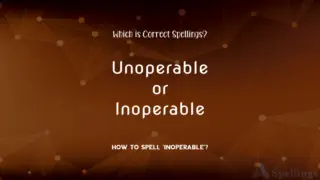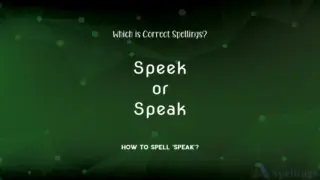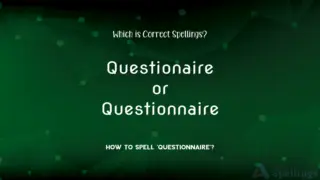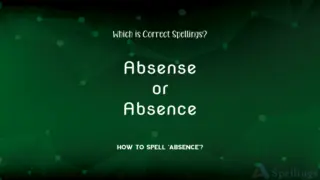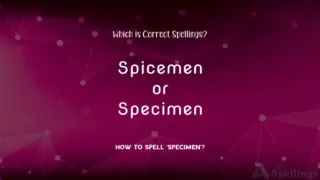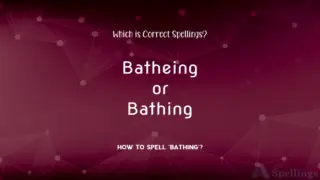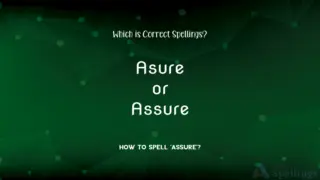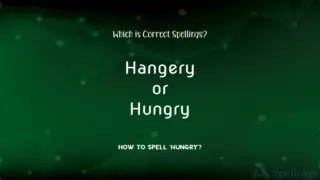Comming or Coming: Which is Correct Spellings?
The incorrect spelling is "comming," while the correct spelling is "coming." "Coming" refers to the act of arriving or approaching.

Which is correct: Comming or Coming
How to spell Coming?

Comming
Comming Spelling

Coming
Coming Spelling
Table of Contents
Is it Comming or Coming
Visual Cue: Visualize "coming" as 'com' + 'ing'.
Sound it Out: Pronounce as "com-ing," emphasizing the single 'm'.
Word Association: Link "coming" with 'becoming', both having a single 'm'.
Single 'M': Remember that "coming" contains only one 'm'.
Rhyme Technique: "Coming" rhymes with 'humming', focusing on the single 'm'.
How Do You Spell Coming Correctly?
Incorrect: She said she's comming over later.
Correct: She said she's coming over later.
Incorrect: Winter is comming soon.
Correct: Winter is coming soon.
Incorrect: Are they comming to the party tonight?
Correct: Are they coming to the party tonight?
Incorrect: The train is comming into the station.
Correct: The train is coming into the station.
Incorrect: I thought you were comming tomorrow.
Correct: I thought you were coming tomorrow.
Coming Definitions
Emerging: Beginning to develop.
She's a coming star in the music industry.
Arriving: The act of arriving at a place.
His coming to the event was unexpected.
Forthcoming: About to happen or appear.
The coming elections are critical.
Future: Referring to the future or something about to happen.
The coming age of technology is exciting.
Approaching in Time or Space: Nearing or approaching.
The coming weekend is going to be busy.
Coming Meaning in a Sentence
The train is coming in five minutes.
The holidays are coming up quickly.
They're coming to visit us next week.
She's coming to the meeting tomorrow.
The movie we've been waiting for is coming out.
The storm is coming, we should prepare.
Spring is coming soon.
My birthday is coming up next month.
They're coming to fix the roof tomorrow.
Grandma is coming for dinner tonight.
He's coming to pick up his books.
Winter is coming, so dress warmly.
Christmas is coming, and the kids are excited.
The new software update is coming next week.
The bus is coming; let's get ready.
The sun is coming up over the horizon.
Her family is coming to visit next weekend.
The new season of the show is coming.
The weekend is coming, and I can't wait.
She's coming back from her trip today.
The repairman is coming in the afternoon.
The concert we're excited about is coming this summer.
Her new book is coming out soon.
The guests are coming at 6 pm.
My cousin is coming to stay with us.
The exam is coming, so start studying.
They're coming to paint the house next week.
He's coming to teach us how to play.
They're coming to discuss the project.
My parents are coming for my graduation.
Coming Idioms & Phrases
Coming up roses
Turning out very well; successful or satisfactory.
Despite the challenges, the project ended up coming up roses.
Coming out of the woodwork
Appearing from nowhere or emerging in large numbers suddenly.
When he won the lottery, distant relatives started coming out of the woodwork.
Coming into play
Becoming active or effective in a situation.
Different skills come into play when managing a large team.
Coming of age
The transition from childhood to adulthood.
His novel beautifully captures the coming of age of a young boy in rural America.
Coming to a head
Reaching a point where action must be taken.
The conflict in the team is coming to a head and needs to be addressed.
Coming into one's own
Reaching a stage of competence or success in something.
She really came into her own as a director during her latest project.
Coming to terms with
Gradually accepting a difficult or unpleasant situation.
She is coming to terms with the fact that she may never be a professional athlete.
Coming up short
Failing to reach a target or standard.
He came up short of his goal to break the world record.
Coming clean
Admitting or confessing to something.
After years of denial, he finally came clean about his past.
Coming up for air
Taking a break from an intense or busy situation.
After working non-stop for hours, she's coming up for air.
Coming to light
Becoming known or revealed.
New evidence in the case is coming to light.
Coming down with something
Beginning to suffer from an illness.
I think I'm coming down with the flu.
Coming into money
Inheriting or receiving a large sum of money unexpectedly.
She came into money after a distant relative left her a fortune.
Coming out of one's shell
Becoming more outgoing or confident.
He's really coming out of his shell since he started college.
Coming apart at the seams
On the verge of collapsing or failing.
The old house was coming apart at the seams, needing serious repairs.
Coming on strong
Behaving aggressively or assertively, often in a romantic context.
He may have scared her off by coming on too strong on their first date.
Coming down the pike
Likely to happen or appear soon.
There are several exciting innovations coming down the pike in our industry.
Coming full circle
Returning to the original position or state of affairs.
After traveling the world, she found herself coming full circle back to her hometown.
Coming into view
Becoming visible or apparent.
As they rounded the corner, the majestic castle came into view.
Coming undone
Starting to fail or lose control in one's life or emotions.
After the loss, he felt like his life was coming undone.
Common Curiosities
What is the verb form of coming?
Coming is the present participle form of the verb "come."
How do we divide coming into syllables?
Coming is divided into syllables as: com-ing.
What is the pronunciation of coming?
Coming is pronounced as /ˈkʌmɪŋ/.
Is coming a noun or adjective?
Coming can be both a noun (as in "the coming of winter") and an adjective (as in "the coming year").
What is the root word of coming?
The root word of coming is "come."
What is a stressed syllable in coming?
The first syllable "com" is stressed in coming.
Is coming a vowel or consonant?
"Coming" is a word, not a vowel or consonant.
How many syllables are in coming?
Coming has two syllables.
Which vowel is used before coming?
There's no specific vowel used before "coming"; it depends on the context of the sentence.
Is the word “coming” a Direct object or an Indirect object?
"Coming" itself is not a direct or indirect object, but it can be part of phrases that act as one.
Is coming an adverb?
No, "coming" is not an adverb.
Is coming a negative or positive word?
"Coming" is neutral; its positivity or negativity depends on the context.
Is the word coming imperative?
No, "coming" is not an imperative form; it's a present participle.
Is the word coming Gerund?
Yes, "coming" can function as a gerund.
What is the third form of coming?
The third form is "come" (same as the first).
Is coming an abstract noun?
Yes, when used as a noun, "coming" is an abstract noun referring to the action or process of arriving or happening.
Is coming a countable noun?
No, as a noun, "coming" is uncountable.
Is the coming term a metaphor?
"Coming" can be used metaphorically, but it is not inherently a metaphor.
What is the opposite of coming?
The opposite of coming is "going" or "leaving."
What is the singular form of coming?
Coming does not have a singular or plural form; it remains the same.
What is the plural form of coming?
Coming does not have a plural form; it is used the same in singular and plural contexts.
Is coming a collective noun?
No, "coming" is not a collective noun.
Which determiner is used with coming?
Determiners like "the," "this," "that," or "next" can be used with "coming."
How is coming used in a sentence?
Example: "The coming of spring brings warmer weather."
What part of speech is coming?
"Coming" can be a noun, an adjective, or a present participle (gerund).
What is the first form of coming?
The first form is "come."
What is another term for coming?
Another term for coming could be "arrival" or "approach."
Why is it called coming?
It's called "coming" from the verb "come," indicating the action of moving or arriving towards something.
What is the second form of coming?
The second form is "came."
Which preposition is used with coming?
Prepositions like "in," "of," and "from" can be used with "coming."
Which conjunction is used with coming?
Conjunctions like "and," "but," or "while" can be used depending on the sentence structure.
Which article is used with coming?
Both "the" (definite) and "a" or "an" (indefinite) can be used, depending on the context.
Share Your Discovery
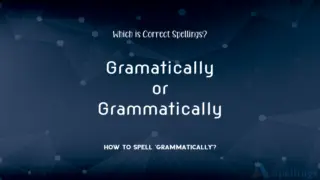
Previous Spelling
Gramatically or Grammatically
Next Spelling
Noticable or Noticeable

